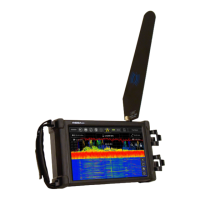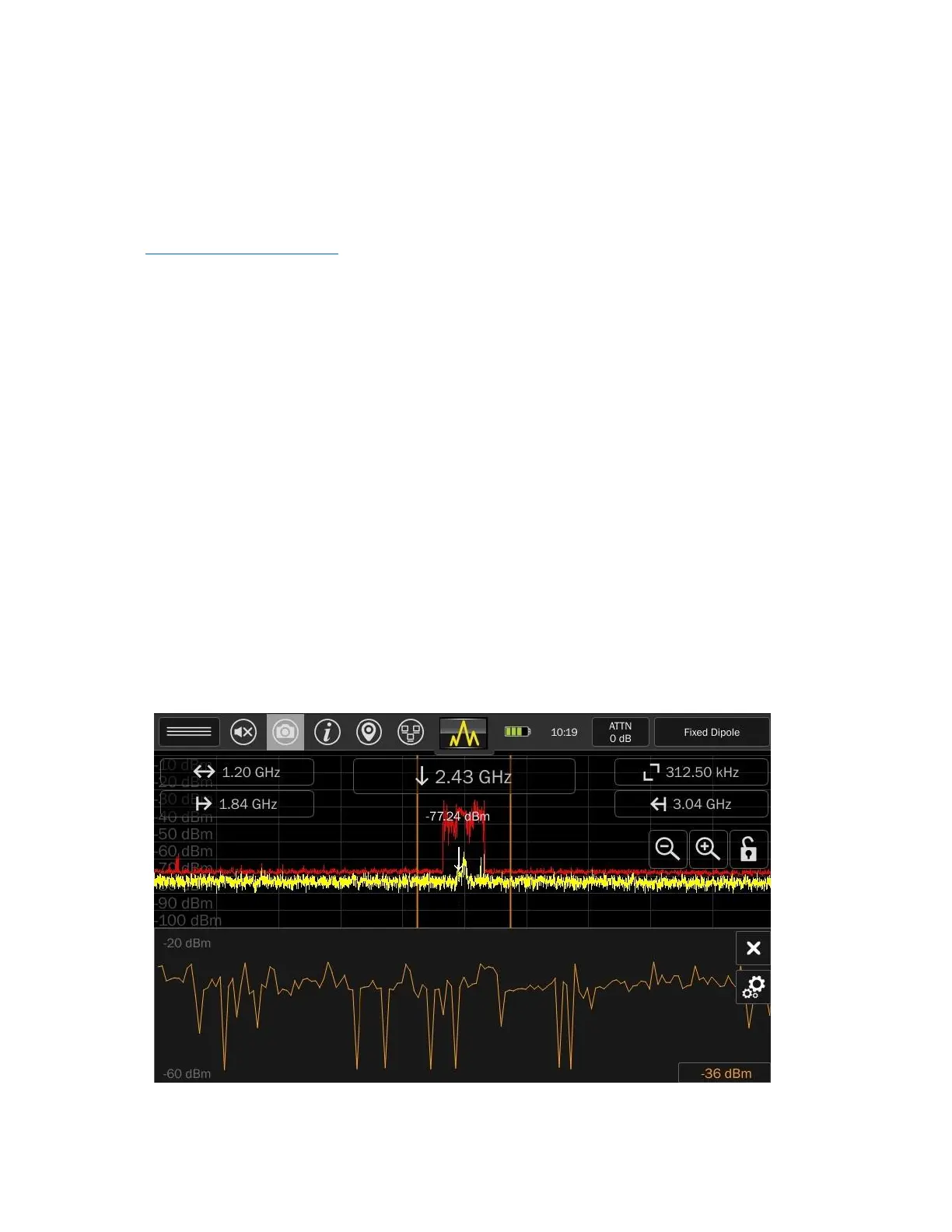36
Three possible file types are available for the I/Q Recording files: iq-tar, idq (IRIS), & Raw.
iq-tar (default): a binary format that includes meta-information (e.g. sample rate) about the data.
The iq-tar container packs several files into a single .tar archive file. The iq-tar files can be read by
equipment that supports Rohde & Schwarz’s iq-tar format.
idq (IRIS): able to be read by the IRIS Spectrum Software available from Transformational Security
(www.powerfulsecurity.com).
Raw: Same as the iq-tar format but with no metadata nor any ‘tar’ packaging.
There are two duration options available:
Max: Will record at the maximum IQ buffer size up to 10 seconds.
Partial: Will record at half the maximum.
The available duration for each option depends upon the frequency span of the spectrum. To increase
the available durations, decrease the frequency span. The max available duration is 10 seconds.
A “notes” field is provided to enable the user to add up to 256 characters of text to be included with the
iq-tar file format. The user notes field is only supported by the iq-tar format; the user notes field is not
accessible if either the idq (IRIS) or the Raw formats are selected.
RSSI
The MESA includes an RSSI locating feature to aid in narrowing down the physical location of a bug. RSSI
stands for Received Signal Strength Indicator.

